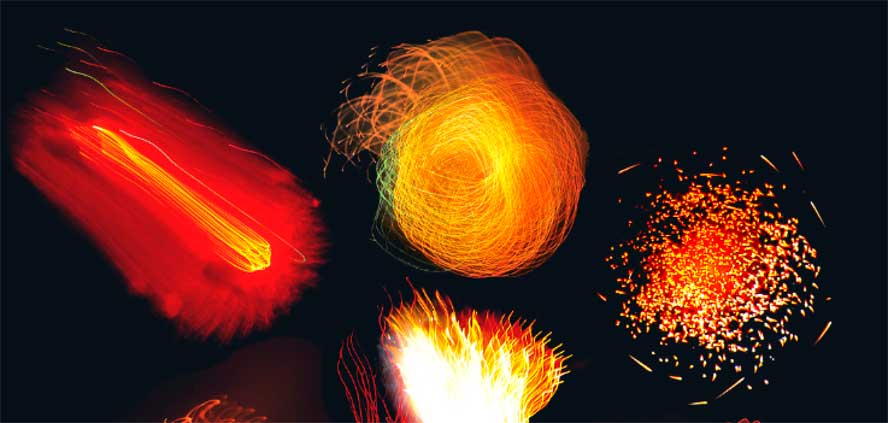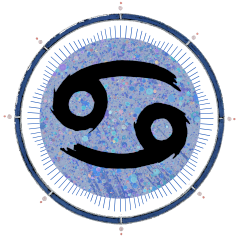
Even highly intelligent people tend to think in paradigms. Those are reality frames, or perceptual parameters. They describe one set of potentials, possibilities, definitions, concepts, and their own “laws of nature,” which “make sense” and have some degree of internal consistency, they hang together. For most, a “paradigm shift” is a good thing. It means progress.“If the mayor chews the eraser off of his pencil during the meeting, put that in the story.” — from the Echoes-Sentinel Style Guide
The consistency of any paradigm is usually imposed through definitions (in the form of, “this is how we will now think of this issue,” or especially, “here is our view of the past, and past knowledge.”) Paradigms are mental constructs and ways of connecting ideas. They exist in us, rather than objectively in reality. A paradigm is a worldview, not the world. But then they manifest in the world. For example, the paradigm, “We are in the age of computers” has shown up in every aspect of life.
With movements in culture, business, technology and ideation, the paradigm shifts and a whole new frame (with all its defined properties and concepts) is applied. These ideas are still limited; they must be internally referenced; what is seen as from being outside the paradigm, or what is threatening to it, is generally not allowed to enter.
There are times when the solution to a skin problem involves taking a slice of your aloe plant and applying it to the injury. But that’s not acceptable in the new medially scientific paradigm. It’s just a houseplant. It’s not sterile. And the aloe may well help heal your irritated skin.
From One Frame To Another
Hence, in the paradigm of medical science, herbalism and homeopathy are taboo and considered unscientific and potentially dangerous. The relationship between the old way and the new way is rarely considered. A pharmacy student might be dimly aware that many modern chemicals are analogs or derivatives of herbal preparations, but those are like things on the shelf of a museum. People who “believe” in herbs are often held by scientific types to be quaint, laughable or witches.
Yet there are times when the solution to a skin problem involves taking a slice of your aloe plant and applying it to the injury. But that’s not acceptable in the new medially scientific paradigm. It’s just a houseplant. It’s not sterile. And many times, fresh aloe may well help heal your irritated skin. It’s better if it does not come out of a bottle, processed by a lab.
Culture, and people, even very bright ones (including many considered geniuses), tend to move from paradigm to paradigm without realizing they are doing so, because the paradigm itself does not overtly contain instructions for observing the shift, or even for confirming that it exists. There are no instructions or provisions for reckoning the old and the new, or seeing the problems transported from one to the next. At the time of a paradigm shift, the new way of thinking is seen as a solution to the old, and often as a panacea.
The new paradigm solves some problems, creates new (and often unforeseen) ones, and accentuates or retrieves some old ones. Yet the idea that it’s all basically the same environment, or a development from one to the other, being reframed in a new set of terms, norms and notions, is generally omitted from the discussion. Paradigms are most often driven by business. “The age of the computer” is a fine example.
To successfully analyze something — such as a social or technological condition — one needs to see paradigms for what they are, the underlying conditions for what they are, and the shifts for what they actually are. What is driving the whole process needs to be identified. Real comparisons need to be made, to get a sense which way things are going — and that rarely happens.
This is why so often, “The more things change, they more they stay the same.”

One can play music with or without music theory (two different musical paradigms). In the theory paradigm, improvisation can be considered a sacrilege. In the 1960s, there was a sign that said NO IMPROVISING in each of the practice rooms in a State University of New York conservatory.
Scientific versus Unscientific, Musically Theoretical or Not
For example, “scientific” versus “unscientific” is paradigmatic. Science is a method of reasoning and set of instructions applicable to some situations and not to others. Logic is a tool. It works when trying to diagnose a problem with an engine, but not in love. Science is useful when sending a rocket to an asteroid. It is not useful in determining whether music is beautiful.
One problem with our society being under the scientific paradigm is that the distinction is rarely made between a scientific finding, and the opinion of a scientist. Then, a supposed astrophysicist can make a claim about biology taken on full authority, and it turns out to be wrong. But he’s a scientist. It must be true.
Under the scientific paradigm, anything unscientific is considered outmoded, or even useless. That’s why our society spends so much on science, math and technology, and so little on “the arts,” which become necessary diversions for people who spend their whole week doing science. Then, there’s nothing like a perfectly unscientific performance of the philharmonic.
Speaking of music, one can play music with or without music theory (two different musical paradigms). In the theory paradigm, improvisation can be considered a sacrilege. (In the 1960s, there was a sign that said NO IMPROVISING in each of the practice rooms in a State University of New York conservatory.) For those who can just pick up the guitar and play, music theory can seem like mental clutter. Most good musicians can work in the theory paradigm and also in a wholly improvisational paradigm; anyone who does this knows they overlap. A little theory goes a long way toward enhancing originality.
Sometimes you want to be so far out out of the music theory paradigm and (for example) never tune the instrument to any scale, and see what result you get. (Robert Fripp does this, to get students out of the box, or paradigm. He also uses an alternative tuning, for an number of reasons; the tuning of a guitar is very much a paradigmatic thing.)
Being conscious of one’s locus of awareness, aware of one’s location in the space-time of ideas and perceptions, is a useful tool. Psychic mobility is essential in our times of multiple overlapping paradigms.
An Alternative to Paradigmatic Thinking
“Let’s use our intelligence and work with all of our tools as needed, to solve whatever problem we may face,” is a more humane approach that is not stuck in a paradigm.
Astrology for example does not need to be, “Hellenistic or otherwise you’re worshipping at the altar of progress.” Modern medicine versus homeopathy does not get anyone anywhere. Spiritual versus scientific in battle does not get anyone anywhere. When I’m in a medical situation, I identify the person in the room who is connected to spirit, and work with them. It might be a nurse, or a doctor, or the med tech.
If I am covering a meeting, I observe the meeting from every corner of the room. I chat up the photographers, who are not stuck in the paradigm that the writers are. It’s why I like to photograph my own stories, so that I’m in both frames at once.
[“If the mayor chews the eraser off of his pencil during the meeting, put that in the story.” — from Echoes-Sentinel Style Guide]Being conscious of one’s locus of awareness, aware of one’s location in the space-time of ideas and perceptions, is a useful tool. Psychic mobility is essential in our times of multiple overlapping paradigms.
You’re used to this approach in my astrology, where I can move from one paradigm to the next, never forgetting what I’m doing, overlapping them, borrowing ideas and using them creatively and cohesively.
I can look at a chart and see Koch houses, whole sign houses, equal houses, solar houses, and Thema Mundi houses, all at the same time, like they’re stacked in transparent layers — working with all of the paradigms at once — if I need to (usually I use two or three).
We don’t need to enter one paradigm and declare all the other ones wrong. That is paradigmatic thinking at its worst, and it’s useless. To be alive right now, it’s necessary to be able to hold multiple viewpoints at once, and to draw solutions from where they really are. This involves seeing problems outside the current mandatory reality frame, consensus view or paradigm.
There are many other paradigms and ways to see the problem. Those involve how the problem is stated (conceived of). They also involve timeframes. How you see global warming largely involves 1. Your perception of society and its value, and 2. What you understand about geological time. The paradigm will shift radically with your time frame.
Anyone truly concerned about global warming should be in love with the novel coronavirus — and I’m surprised this viewpoint is not going around, except in my articles.
The Global Warming Example
Here is an example related to global warming. Most people agree that it’s happening; many accept that it has human-created causes, which fall under the “scientific paradigm.” Yet how you respond to global warming and what you think it means depend on your approach to the question. The scientific paradigm lays out the cause and the effect. But that does not help us understand what is really happening.
Global warming does not threaten the Earth itself. This is not about “saving the planet.” The Earth regularly takes meteor strikes, and goes into “nuclear winter” for centuries (this happens about every 65 million years, and we are overdue). Very little survives these incidents (candidates are things like ferns, horseshoe crabs, cockroaches, bacteria, etc). None of this human creation we see all around us will last long. Global warming threatens human society and economic existence as we define them today.
Catastrophic meteor strikes will happen many more times before the Sun becomes a red giant. We are due for one right about now. There will be no way to see it coming. It will just happen.
One approach to a problem like global warming is, “The paradigm where the problem has a solution” is the correct one.
The problem with global warming is that some people are outside of the paradigm where it’s seen as happening, or being associated with human activity. We all still face the issue of lowlands flooding, for storms, of the effects.
Netherlands has a paradigm for that. The Maldives do not. They will need to be relocated. Netherlands can live below sea level for centuries more. God made the world, the Dutch made Holland, is the joke.
Anyone truly concerned about global warming should be in love with the novel coronavirus — and I’m surprised this viewpoint is not going around, except in my articles.
It may have solved the problem, as defined in the “human cause of global warming” paradigm. Certainly it has, for now, and has demonstrated that we don’t need to burn so much fuel, or run the economy so hot, and that eternal growth is not possible so we may as well not set it as a goal. We now know we can change overnight.
That’s a whole new reality frame, which would have been said to be impossible on New Year’s Day.
Then we need to solve the problem of people needlessly starving while tons of food are plowed back into the ground. That’s an economic paradigm: don’t eat the food unless there’s a profit to be made. This would seem to defeat the purpose of food.
Conclusion: Thinking For Yourself
We often talk about thinking outside the box. Everyone loves this expression. What it means is going outside the bounds of the currently dominant paradigm. Said another way, it means being open minded and what I call psychically mobile. Another way to describe this is “thinking for yourself.”
An intelligent person will be able to size up a situation and ask what paradigm to apply. If you have to solve a vexing problem with a motorcycle engine, you will need pure logic. If you’re speaking with a child, you will need to get inside of their paradigm and explain things in a way that makes sense to both of you.
What is so interesting is the way that paradigms overlap. Science in the pure sense is all about its methods and its data. Yet the hypothesis can be pure inspiration, that seems to enter from another dimension. Science begins with the hypothesis, and nothing could be less scientific than that.



